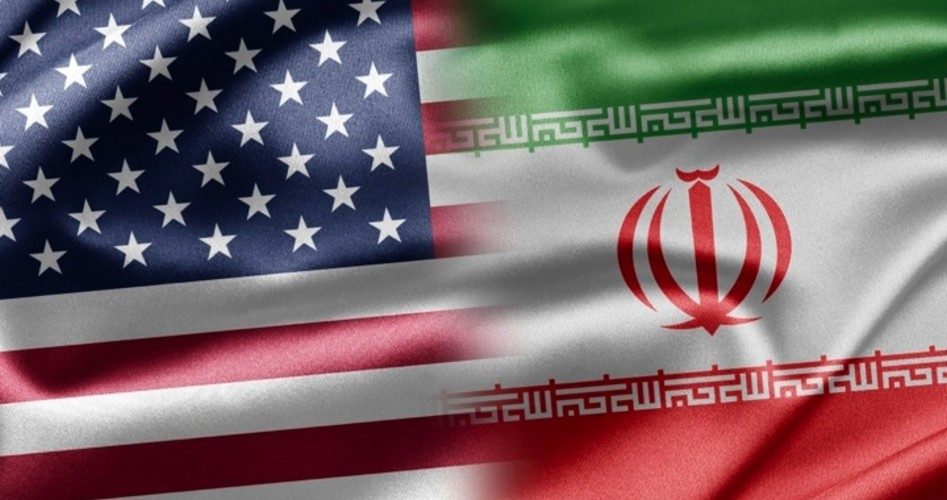
In an odd turnabout that few might have predicted a year or more ago, the United States now finds itself allied with Iran in the battle to defeat the Islamic State of Iraq and Syria (ISIS) — also known as the Islamic State of Iraq and the Levant (ISIL).
ISIS/ISIL, which has received a great deal attention after its capture of much of northern Iraq and its posting of Internet videos of its beheadings, is the successor to the group commonly known as al-Qaeda in Iraq (AQI). On May 14, 2014, the U.S. State Department announced its decision to use “Islamic State of Iraq and the Levant” (ISIL) as the group’s primary name, most likely to avoid reminding the world that that U.S. aid to the anti-Assad rebel coalition in Syria benefited ISIS.
The Washington Post, citing U.S., Iraqi, and Iranian sources, noted in a December 27 report that Iran has greatly increased its military involvement in Iraq over the past year by providing much-needed aid to the Baghdad government in its fight against Islamic State militants. ISIS conquered much of northern Iraq, including the major city of Mosul, last June, extending its scope of its operations from its activities against Syrian President Bashar al-Assad. Former U.K. Prime Minister Tony Blair commented at the time, “There is also no doubt that a major proximate cause of the takeover of Mosul by ISIL is the situation in Syria.”
The Post quoted a senior Iranian cleric identified as having close ties to Tehran’s leadership, who spoke on the condition of anonymity. The cleric said that since the Islamic State captured much of northern Iraq, Iran has sent more than 1,000 military advisers to Iraq, as well as elite units, and has also conducted airstrikes and spent more than $1 billion on military aid.
“The areas that have been liberated from DAESH have been thanks to Iran’s advice, command, leaders and support,” the cleric said. DAESH is an Arabic acronym used almost exclusively by opponents of ISIS.
The Post also quoted Ali Khedery, an Iraqi-American who advised four U.S. ambassadors in Iraq, who said that the tensions that existed between the United States and Iran since 2003 (mostly stemming from Iran’s opposition to the U.S. flying of drones over Iran to obtain intelligence Iran’s nuclear fuel enrichment program) have been eased by their shared interest in defeating ISIS.
“ISIS will be defeated,” said Khedery, chairman and CEO of the Dubai-based Dragoman Partners. “The problem is that afterwards, there will still be a dozen militias, hardened by decades of battle experience, funded by Iraqi oil, and commanded or at least strongly influenced by [Iran’s Revolutionary Guard Corps]. And they will be the last ones standing.”
The Huffington Post reported on December 1 that Iran had joined a U.S.-led coalition that included Canada, the U.K., and France in bombing ISIS targets in Iraq. An unnamed defense official told the Post that he believes the Iranian bombing is unlikely to end as long as Iran feels threatened by ISIS. The official said that Iran’s bombing will not require a U.S. response unless Iran presents an immediate threat to U.S. forces in the air.
“We are aware of that. I wouldn’t say we’re necessarily concerned with it — we kind of have our eyes on it,” the official said. The official noted that the Iranian bombing has been taking place near the Iranian border, in a different part of Iraq from most U.S. and coalition activity. He noted that he could confirm reports of the bombing only on the condition of anonymity.
The Post also quoted a statement made by White House Press Secretary Josh Earnest in November that although the United States and Iran were not actively cooperating, they did share a common interest. Said Earnest, in typically vague bureaucratese:
We won’t share intelligence with them, but their interest in this outcome is something that’s been widely commented upon and something that on a couple of occasions has been discussed on the sidelines of other conversations.
We noted in our article on November 7 that in a letter sent secretly to Iran’s Supreme Leader Ayatollah Ali Khamenei in October, President Obama maintained that the two nations shared a common interest in fighting ISIS or ISIL in Iraq and Syria. The story was broken by the Wall Street Journal, which attributed information about the letter to unnamed “people briefed on the correspondence.”
The president’s letter to Khamenei sent a mixed message, according to the report. While advocating that Iran cooperate with the United States in military action against ISIS, it also insisted that such cooperation was contingent on Iran reaching a comprehensive agreement with global powers on the future of Tehran’s nuclear program by a November 24 diplomatic deadline set by the six world powers (called the P5+1).
A November 7 report from the International Atomic Energy Agency (IAEA) cited an agency statement that Iran and the IAEA had agreed to a “technical meeting to further discuss the two outstanding practical measures … but not before November 24.”
U.S.-Iranian cooperation — however distant and qualified — in fighting ISIS is only the latest in a long history of reversals and inconsistencies in U.S. foreign policy in the Middle East. When the U.S. government stopped supporting the Shah in Iran — a ruler the CIA and British SIS (MI6) had helped to gain power by covertly working to force the Shah’s predecessor, Prime Minister Mohammed Mosaddegh, from office — the Shah was replaced in 1979 by a militant Islamic regime led by the Grand Ayatollah Ruhollah Khomeini. On November 4, 1979, radical young Islamists, angered by U.S. refusal to return the Shah to Iran after he had sought medical treatment in the United States, invaded the U.S. embassy and seized its staff, starting what was called the Iran hostage crisis. Fifty-two U.S. diplomats and citizens were held hostage for 444 days. The crisis was the beginning of a period in which the two nations have had an adversarial relationship, and diplomatic relations severed after the revolution were never reestablished.
The United States aided Iraqi strongman Saddam Hussein during the 1980-1988 Iran-Iraq War. Hussein received diplomatic, monetary, and military support from the United States, including large loans, political support, and intelligence on Iranian deployments gathered using U.S. spy satellites.
But U.S. policy in the region is fickle. The United States and a coalition of allies invaded Iraq and removed Hussein from power in 2003. Had he remained in power, it is highly unlikely that ISIS or similar terrorist groups would have succeeded in overrunning much of Iraq.
Not satisfied with removing one dictatorial strongman who at least kept his nation somewhat stable and free from terrorists, our government tried once more. The Obama administration has aided the rebel forces attempting to remove Syrian President Bashar al-Assad.
The ISIS militants we are now trying to subdue are allied with the rebel coalition fighting against the Assad regime in Syria — a coalition that has received U.S. support. President Obama expressed hope in a news conference to “mobilize the international community to support” installing a new regime in Syria.
Senator Rand Paul (R-Ky.), who was obviously aware of the connection between the anti-Assad rebels and the al-Qaeda-linked ISIS, made a statement on May 21, 2013, directed at his colleagues, nearly all of whom voted to send arms to Syrian rebels: “This is an important moment. You will be funding, today, the allies of al-Qaeda.”
It seems that every time the United States intervenes militarily in the Middle East, the result is a radical regime worse than the one we removed or helped remove.
On September 15, news commentator Erin Ade of RT asked former Representative Ron Paul, who consistently opposed U.S. involvement overseas while in Congress, “Should the president take on ISIS in Iraq? I mean, does ISIS represent a clear and present danger to America?”
Paul replied:
No, absolutely not. It’s a foolish thing. It was foolish when we got involved in 1990-91; it was foolish in 2003 when we expanded it and invaded [Iraq], and the bombing in-between killing hundreds of thousands of Iraqis. It’s time to quit, and time to say that it’s not working.
Paul also presented his recommendation to end the ISIS threat:
If you don’t like ISIS, just walk away and Syria and Iran will take care of them and they’ll get rid of all the radicals just as Saddam Hussein did. There was no al-Qaeda in Iraq [when Hussein was president] and there is no al-Qaeda in Iran.
Obama Sends Letter to Iran’s Leader Suggesting Anti-ISIS Cooperation
Defense Officials Present Dim Picture of War Against ISIS
Obama, Neocons Push Intervention Amid Foreign Policy Disasters
Iran’s Revolutionary Guards Fighting ISIS in Iraq
Obama-backed War Making Syria a Jihad Haven; Europe Threatened
Al-Qaeda & the West Back Syrian Rebels Against Assad
Most Arms Shipments to Syria Go to Jihadists
Obama Deepens U.S. Support for Syrian Rebels with Secret Order
U.S.-funded Jihadist “Holy War” in Syria Seeks Sharia Dictatorship

